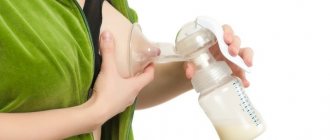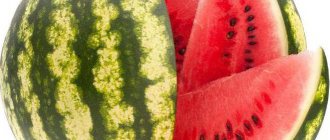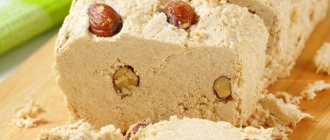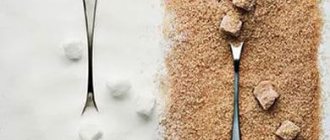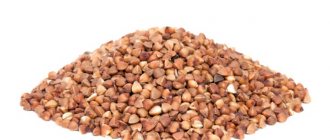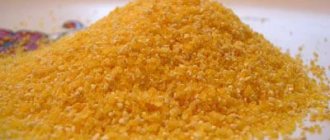Indications for use
- Insufficient calcium content in the body (disorders of its metabolism, increased excretion, insufficient intake or increased need for calcium);
- Allergic diseases;
- Bleeding of various etiologies;
- Diseases of the parathyroid glands with insufficiency of their functions;
- Damage to the liver and kidneys;
- Inflammatory diseases;
- Antidote for poisoning with oxalic acid, magnesium sulfate, fluoric acid;
- Skin diseases;
- Bone fractures.
Benefits of calcium
Calcium ranks fifth among the elements in terms of content in human blood, soft and bone tissues. It performs a number of important functions in the body of mother and baby:
- Forms bone tissue and tooth enamel;
- Strengthens bones and teeth, nails and hair;
- Reduces allergic reaction. What will help a baby with allergies, read here;
- Ensures normal blood clotting;
- Strengthens the walls of blood vessels;
- Regulates muscle function;
- Improves the functioning of nerve cells;
- Removes heavy metals from the body;
- Relieves stress during breastfeeding, relieves fatigue and stress;
- Reduces blood cholesterol levels;
- Lowers blood pressure;
- Positively affects the functioning of the thyroid and pancreas;
- Prevents the appearance and development of osteoporosis;
- Prevents the formation of blood clots.
With a lack of calcium, nails become brittle, hair splits and lose color, skin withers and teeth crumble, sometimes itchy skin and joint pain, caries and cramps appear. To prevent these problems, you need to follow the daily intake of the element.
Dosage of the drug in tablets
Before meals or an hour after meals, washed down with milk
| Patient age | Frequency and dosage of the drug | Maximum daily dose, grams |
| Adults and children over 10 years old | 1-3 grams 2-3 times a day | 9 |
| Children under 4 years old (not earlier than 3 years old) | 1 gram 2-3 times a day | 3 |
| Children from 5 to 6 years old | 1-1.5 grams 2-3 times a day | 4.5 |
| Children from 7 to 9 years old | 1.5-2 grams 2-3 times a day | 6 |
Can and should a nursing mother take calcium: TOP 5 drugs and products
13.09.2018 | 13175
The development of the baby daily requires more and more minerals and vitamins, which cannot but be affected by the deficiency of substances in the mother’s body. A woman’s diet during this period is limited to anti-allergens with the exclusion of many healthy foods from the menu. The deficiency of elements must be replenished, including with Ca preparations.
Why does the body need calcium: beneficial properties and daily intake
Ca is the main building material of the body. The mineral participates in metabolic processes, strengthens the connective tissues of cells, ensuring the transmission of nerve impulses and the production of neurotransmitters.
Daily norm
The adult body's need for Ca depends on age and diet: for a person 19-50 years old - 1 thousand mg per day; up to 18 years – 1300 mg; after 50 years – 1500 mg. The Institute of Medicine recommends that breastfeeding mothers over the age of 18 consume 1,000 mg of calcium daily, the same as other adults [1].
When breastfeeding, the daily calcium intake is 1000 mg, since pregnant and nursing mothers do not require additional calcium.
Consequences of calcium deficiency in the body: what are the dangers?
During pregnancy, calcium costs doubled, resources were spent on the formation and growth of the fetal skeletal system. Therefore, in the first months after the birth of a child, a woman notices hair loss, brittle nails, weakness, cramps in the limbs, and bone pain. Symptoms are characterized by, an examination is required to prescribe therapy.
Hilary Flower researched this issue and found three important facts that came from Dr. Anne Prentice's research in recent years [2]:
- Restoration of bone mineral density occurs BEFORE weaning. Recovery begins after the baby's diet begins to be supplemented with other foods or liquids (the "partial breastfeeding phase"). By 12 months, breastfeeding mothers had fully restored their bone mineral density.
- If the mother becomes pregnant before full recovery, bone mineral density increases during pregnancy, the phenomenon is usually not observed.
- Mothers who tandem feed live similarly to their breastfeeding counterparts.
Consequences for the child
- Irreversible deformation of the lower extremities, sternum, frontal and parietal bones.
- Malocclusion.
- Pulmonary failure (due to curvature of the chest).
- Flat pelvis in girls.
- Myopia.
- Hypermobility of joints.
- Chronic anemia.
Lack of calcium in a newborn is manifested by asymmetry of the skull, softening of the boundaries of the fontanel, the formation of bumps on the crown of the head, and deformation of the legs. Ignoring symptoms leads to delayed physical and mental development of children.
According to the American Academy of Pediatrics policy statement on calcium requirements for infants, children, and adolescents [3]:
“There is no available evidence to suggest that exceeding the amount of calcium in the diet during the first 12 months of life is beneficial for achieving long-term increases in bone mineralization.
There is little data on the calcium requirements of children before puberty.
Calcium retention rates in young children are relatively low and increase slowly as puberty approaches.”
Products with calcium during breastfeeding (lactation): list
The Ca element plays a leading role in the physical development of the baby and is responsible for the formation of the skeleton, muscle tone, and neural connections. Calcium restores a woman’s body after childbirth, restores beauty to hair, strength to nails and teeth.
In the first 6 months, the mother loses 7% of bone tissue, this affects her well-being and appearance. Teeth often crumble, nails peel, and hair falls out. The changes are associated with hormonal changes and will subside in six months.
Calcium is then restored on its own by consuming nutritious foods.
It is not recommended to take calcium supplements without consulting your doctor. A woman often gets scared in the first time after giving birth and prescribes the drug herself.
But after six months, the concentration of the substance in the blood increases naturally and taking supplements provokes hypercalcemia.
The disease primarily threatens complex pathologies of the cardiovascular system.
https://www.youtube.com/watch?v=1RBmN-XUPzw
When adjusting the menu, the tendency to allergic reactions in infants is taken into account. For example, it is better for a nursing mother to avoid drinking milk as a source of calcium for up to six months.
Recommended diet
- Low-fat cottage cheese, natural yogurt without additives.
- Hard varieties of cheese.
- Sesame - as an additive to dishes (5 tablespoons = daily requirement for Ca).
- Figs, prunes, dried apricots.
- Green vegetables and herbs - broccoli, cauliflower, lettuce, dill.
- Fruits - kiwi, green apples, bananas, pears (100 grams - 1% daily share).
- Bread (yeast-free, whole grain flour).
- Nuts from the third month - cashews, pine, walnuts.
For up to six months, pediatricians recommend excluding legumes, bread made from wheat and corn flour, and almonds from the diet.
Despite the high proportion of calcium in the composition, the products are extremely allergenic and unsafe for the baby.
In general, it is considered safe to take up to 2,500 mg of calcium per day, although this is more than necessary. If you're supplementing with more than 500 mg of calcium per day, split the dose so that you don't take it all at once—calcium absorption is best when a person consumes no more than 500 mg at a time. Excessive calcium intake can cause numerous side effects.
TOP 7 products by calcium content
The concentration of Ca in the blood of a healthy body is regulated by biological processes; drug support is required only in case of serious deficiencies.
During breastfeeding, calcium consumption doubles, but adjusting the menu quickly makes up for the costs: 80% of the mineral enters the body with dairy products.
For example, the concentration of Ca in a glass of yogurt is 230 mg, i.e. 1/6 of the daily requirement.
Table 1 - List of foods high in calcium
Product: Ca, mg/100 g:
| Hard cheeses | 550-1200 |
| Brynza | 560 |
| Sesame | 1150 |
| Almond | 254 |
| Sardines | 350 |
| Sprats | 300 |
| Rye bread | 323 |
For proper absorption of calcium, it is necessary to exclude animal fats and products containing oxalic and phytic acids (oatmeal, semolina, tea, coffee, soda). Otherwise, the mineral will not enter the blood serum and will be washed out of the body unchanged.
Parsley is rich in calcium, as well as cabbage and basil. Beans and dried apricots, in addition to their high mineral content, are also very useful during lactation.
The products purify milk from heavy metal salts and remove harmful substances from the body.
Calcium supplements for breastfeeding: list
Drug therapy is discussed with a doctor after diagnosis of disorders. To prevent deficiency, multivitamin complexes containing calcium and dietary adjustments are prescribed. In case of severe deficiency, a course of combined drugs with Ca and colecalciferol (vitamin D3) is recommended. Only in such a complex is the mineral absorbed in the body.
Recommended vitamins for breastfeeding
Table 2 - List of drugs containing calcium
Name: Release form; pieces per package: Ca in 1 tablet, mg: Price, rub:
| Calcium-D3 Nycomed | chewable tablets;20/30/50/60/90/100/120 | 1250 | 210-690 |
| Calcium gluconate | tablets;10-100 | 500 | 14-400 |
| Calcium+Vitamin D3 Vitrum |
Source: https://kormigrudyu.ru/kaltsij-pri-grudnom-vskarmlivanii
Calcium gluconate analogs
| Group of analogues | Drug name | Use during pregnancy and breastfeeding |
| Analogs for the active substance | Calcium gluconate B. Brown | Approved for use during pregnancy and breastfeeding |
| Calcium gluconate-Vial | Approved for use during pregnancy and breastfeeding | |
| Calcium gluconate-Lect | Approved for use during pregnancy and breastfeeding | |
| Analogs by pharmacological group | Calcium lactate | Approved for use during pregnancy and breastfeeding |
| Calcium glycerophosphate | Approved for use during pregnancy and breastfeeding | |
| Calcium pangamate | Approved for use during pregnancy and breastfeeding | |
| Calviv | Approved for use during pregnancy and breastfeeding | |
| Calcium Sandoz Forte | Approved for use during pregnancy and breastfeeding in acceptable dosages | |
| Additive calcium | Approved for use during pregnancy and breastfeeding | |
| Kalcemin | Approved for use during pregnancy and breastfeeding | |
| Calcium-D3-nycomed | Approved for use during pregnancy and breastfeeding in acceptable dosages |
Calcium during breastfeeding: how to take and which one is better
Calcium is necessary both for the full development of the baby and for the restoration of the woman’s body after childbirth. This important mineral is involved in the formation and strengthening of the child’s bone skeleton and maintains the health of the mother’s hair, nails and teeth.
Calcium during breastfeeding
During breastfeeding, a woman especially needs calcium due to the restructuring of her hormonal system. It tends to recover within six months after childbirth, but this is only possible if you eat food containing enough of it.
To compensate for the lack of calcium in the body, nursing mothers are advised to adjust their diet or even start taking special medications, but more on that later.
Benefit
Calcium is an essential micronutrient for nursing mothers. It, like iodine, iron, zinc, is actively involved in the development and structure of the body of the mother and baby and performs the following functions:
- strengthens hair and nails;
- participates in the formation of bone and tooth enamel;
- helps strengthen the walls of blood vessels;
- reduces the amount of cholesterol in the blood;
- relieves stress, tension and fatigue;
- increases muscle tone;
- normalizes blood pressure;
- regulates the functioning of the pancreas and thyroid gland;
- stops the development of osteoporosis;
- prevents the formation of blood clots.
Calcium intake for nursing mothers
The daily calcium requirement for breastfeeding is 1.5 g. This amount is contained in 1.5 liters of milk or 150 g of cheese.
It is not recommended to exceed the dose, because Excessive consumption can harm the body and lead to the development of hypercalcemia, which causes:
- increased drowsiness;
- fatigue;
- impaired concentration;
- the appearance of depression;
- loss of appetite;
- a sharp decrease in body weight.
Symptoms such as:
- nausea;
- vomit;
- arrhythmia;
- hypertension.
Recommended Diet
Proper nutrition is the main condition for replenishing calcium during breastfeeding. Many products contain it in sufficient quantities, but you need to take into account that some of them can cause allergies or negatively affect the child’s health.
In addition, absorption is negatively affected by:
- salty food;
- high fat milk;
- products with oxalic acid.
Calcium salts are washed out of the body of a young mother when consumed:
It is better to give preference to hard cheeses
Dairy products as a source of microelements
Dairy products are a common source of calcium. It should form the basis of nutrition for nursing mothers due to the large amount of nutrients it contains.
Fermented milk products help improve digestion, because... they contain lactic acid bacteria. In addition, lactic acid improves the absorption of calcium in the intestines.
The following dairy products will help compensate for the lack of microelements:
- Natural cow's milk. Although the product is rich in Ca, it should be consumed in small quantities.
According to the recommendations of modern pediatrics, in the first 3 months of a baby’s life it is better to abandon it altogether. Milk contains a large amount of protein, to which a child may develop an allergic reaction or dyspepsia. - Cottage cheese or homemade yogurt. The presence of calcium in these products is high, and they do not pose any danger to the health of the baby.
- Cheese. Women during the lactation period are recommended to include hard cheeses in their diet, because
in soft species the amount of calcium is insufficient. It is forbidden to consume processed cheeses, because... they often contain chemicals that cause an allergic reaction or even poisoning.
Homemade yogurt is an excellent source of calcium
Top 5 Calcium-Containing Foods for Nursing
When breastfeeding, a large amount of microelements, including calcium, is washed out with milk, so young mothers should eat more foods high in calcium.
Below are the top 5 foods by calcium content per 100 g serving:
- Sesame – 1150 mg. It is recommended to add it to flour products or salads, or you can eat it just like that.
- Almonds – 254 mg. Any nuts are not easily absorbed by the body, but their moderate consumption will be of great benefit to a nursing mother. 2 times a week, 30-50 grams will be enough to strengthen hair and nails.
- Fresh herbs, especially parsley – 245 mg. Including greens in your daily diet will help cope with calcium deficiency in the body. It is recommended for nursing mothers to eat spinach, parsley, broccoli, and dill.
- Dried apricots – 170 mg. It is a useful product for young mothers. In addition, this is an excellent option for preparing delicious compotes and desserts.
- Dried beans – 150 mg. Legumes are not an easy product for the digestive system, so it is better to use them with caution so as not to provoke gas in a newborn.
Lack of calcium in the body
Calcium deficiency causes severe weakening of the body. Its decrease often leads to malfunction of various organs. This phenomenon often occurs in nursing mothers and children.
It is important to identify the deficiency in a timely manner and take action, because the consequences may be irreversible.
Signs of deficiency
If the body lacks a mineral, this may manifest itself in the following clinical picture:
- brittle nails;
- crumbling of teeth;
- dry skin;
- weakness;
- convulsions;
- numbness of fingers;
- decreased concentration;
- pain in muscles, joints;
- rashes, acne on the skin;
- bleeding gums;
- systematic headaches;
- heart rhythm disturbances.
If your hair is splitting or falling out, this may also indicate a lack of calcium.
Consequences for a woman
The consequences of a deficiency for a woman can be the following pathological conditions:
- hypertension;
- urolithiasis disease;
- bleeding;
- frequent fractures;
- osteoporosis;
- osteoarthritis.
These diseases develop quickly due to reduced immunity, so it is better not to delay a visit to the doctor.
Consequences for the child
Calcium deficiency in a child can result in the following problems:
- anemia;
- myopia;
- pulmonary failure;
- malocclusion;
- deformation of the legs, sternum, frontal bones;
- frequent limb cramps.
The importance of the mineral for a child’s health is great, because this element has a beneficial effect on its growth and development. He is responsible for:
- bone density;
- timely growth of teeth;
- strengthening tooth enamel;
- metabolism;
- increasing immunity.
Ignoring the symptoms of mineral deficiency in the body often leads to delayed physical and mental development.
Do I need to take calcium supplements and which ones are better?
A nutritious diet does not always eliminate the problem of calcium deficiency in the body. In such situations, medications selected according to the doctor’s recommendations come to the rescue.
Single drugs
These medications contain pure Ca and include the popular calcium gluconate. It does not harm the body, but people with bladder and kidney problems should avoid it to avoid the formation of stones.
Combined
The composition of these drugs includes the active component - vitamin D3. The most popular include:
- Calcium D3 Nycomed.
- Calcemin Advance.
- Calcemin.
Unlike mono-drugs, these drugs are more effective, because Calcium is absorbed by the body better in combination with sun vitamin.
Multivitamin complexes
The necessary vitamins and microelements are included in these complexes, however, according to many experts, multivitamins are not absorbed as well as single preparations. Among these drugs are
- Elevit.
- Mom's health.
- Vitrum Pronatal Forte.
Recommendations for breastfeeding
When choosing any drug, a nursing mother should always consult a doctor. The presence of a problem and its extent can only be determined by conducting an accurate laboratory analysis.
Self-administration of medications can cause irreparable harm to the body.
Contraindications to taking calcium supplements and precautions
Calcium supplements are prescribed to nursing mothers with great caution, i.e. Only the doctor decides the dosage of the drug.
All sources of microelements in a woman’s diet are taken into account. The specialist must also monitor the woman’s condition throughout the course.
Contraindications to taking the drug are:
- kidney diseases;
- excess vitamin D;
- renal failure;
- acute tuberculosis;
- sensitivity to the components of the drug;
- age up to 3 years.
Conclusion
Calcium is one of the most important microelements for the health of a nursing woman and child. Calcium-rich foods should always be present in the diet.
As a last resort, the deficiency must be compensated with drugs from pharmacies (consultation with a specialist is required).
Remember that a lack of calcium can lead to irreparable consequences.
Source: https://Detky.ru/grudnoe-vskarmlivanie/calcij-pri-kormlenii-molokom
Calcium deficiency during breastfeeding and ways to eliminate it
The body of a nursing mother tries to provide the infant with the necessary substances. The first year of life is characterized by the highest growth rate of a newborn baby. For full development, calcium is important during breastfeeding. The growth of a child's bones and teeth requires sufficient amounts of this mineral.
Nutrition for a nursing mother
During pregnancy, most women try to choose healthy foods. This approach should remain after childbirth, since the baby’s growth accelerates even more. Additional inclusion of calcium-rich foods in the diet will help replenish reserves and maintain the health of the young mother during breastfeeding.
This mineral is one of those components whose needs can be calculated in grams. A baby under one year old needs about 600 mg per day. A nursing mother needs an intake of 1.6 - 2 g.
This amount will ensure not only the full composition of breast milk, but also to avoid the leaching of calcium from the bones of the young mother.
This will help reduce the risk of osteoporosis, which is common in older women.
Sources of calcium
Among your daily meals, you can choose foods that will help effectively increase your calcium intake during lactation. When deciding whether to include a new product in the menu, do not forget about the risk of allergies in infants. When feeding, each product should be introduced little by little and with caution.
There are foods that are particularly high in the mineral.
- Sesame seed. Record holder for calcium content. 100 g of product contains up to one and a half grams of mineral. Sesame seeds contain valuable vegetable oil, which further enriches the diet with polyunsaturated fatty acids. Of course, it’s not worth eating it in such quantities. But including sesame in the menu more often will become a useful habit.
- Greens and vegetables. A variety of greens will be a good addition to your meal. Parsley contains an average of 245 mg of calcium per 100 grams, 210 mg in leafy greens and 106 in spinach. All types of cabbage are good sources.
- Soy products. If you are intolerant to cow's milk proteins, soy products will help fill your needs. But when consuming them, there is also a high risk of an allergic reaction.
- Canned fish. Not the most useful product. However, the high cooking temperature allows the fish bones, a rich source of calcium, to cook. Can a nursing mother eat canned food? With limited salt consumption with other foods, it is sometimes possible to include fish in the menu in the absence of allergies.
Dairy
Dairy products are a common source of calcium. beneficial substances makes it an important nutritional component for a nursing mother. Consumption of fermented milk products will provide the young mother with an increased supply of minerals and will help improve digestion due to the content of lactic acid bacteria. lactic acid improves calcium absorption in the intestines.
Store shelves are filled with different types of fermented milk products, but you can get the maximum benefit during lactation by fermenting milk at home.
Following the cooking rules will allow you to get the perfect result:
- When choosing milk, freshness and quality should not be in doubt. For making natural yogurt or kefir, only real normalized milk is suitable.
- You need to buy sourdough from reliable places. There are many options available for a wide variety of products.
- The thickness of the finished yogurt directly depends on the fat content of the milk.
- During preparation, cleanliness must be observed. All used items and containers are sterilized. Before adding the starter, the milk is boiled and cooled to the desired temperature.
- To obtain a high-quality product, everything is prepared strictly according to the instructions for the starter.
Calcium preparations
Competent inclusion of various foods in the diet is sometimes not enough. Then you can resort to taking additional supplements. Calcium preparations approved for use during lactation are presented on the shelves of all pharmacies. When purchasing, you need to clarify whether the selected supplement can be taken while breastfeeding.
The best option would be to take a drug that combines calcium citrate, vitamin D3 and ascorbic acid. This combination allows you to achieve the maximum possible absorption of the mineral.
Release forms assume the presence of soluble tablets. Perhaps many will find this option more convenient.
Mother's milk contains 4 times less calcium than cow's milk. But when producing milk, the body will in any case provide the required percentage of all components. Therefore, taking supplements will not affect its composition.
The absorption of calcium from preparations is low. Sometimes supplements turn out to be useless. All components transit through the intestinal tract and do not have any effect.
The preferred option is to frequently eat foods high in mineral content. In recent years, many milk formulas for nursing mothers have appeared.
They are the best way to supplement your diet with calcium.
